Four Ways to Stay in the Water After High School Graduation
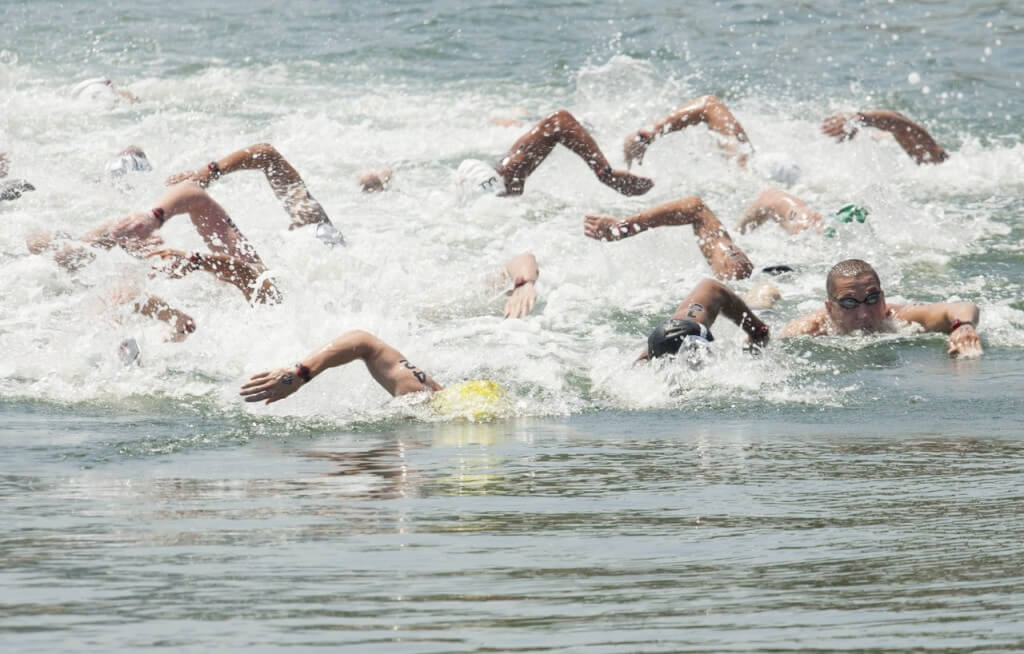
By Sydney Mason, Swimming World College Intern.
Most high school swimmers don’t sign on to swim for four years of college swimming. We continue our lives, sans pool, with team hoodies and Speedo backpacks serving as the only indicators that we were once torpedoes in the water. We slowly lose muscle memory, and the only way we can relive the glory days is by pulling a “Katie Ledecky” on a friend in swim trunks at a pool party.
But wait…it doesn’t have to be this way! There are a myriad of ways in which swimmers can continue competing after high school graduation without swimming on a college team.
1. Swim for your College Club Team
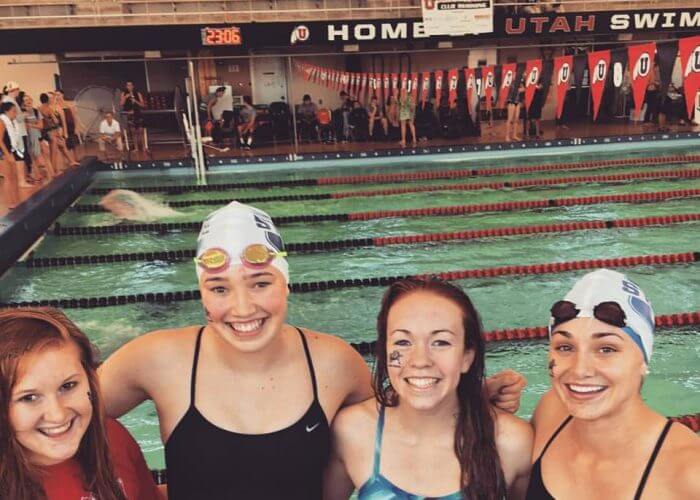
Photo Courtesy: Sydney Mason
Although I attended a D1 school comprised of about 30,000 students, we did not have a swim team. There was a demand; therefore, a club team began meeting and training together on the campus pool several years ago. I moved to the college town not knowing anyone and chose to join the club team in order to make friends just as much as to continue swimming.
On the club team, I immediately connected with a “family” of college students and faculty who all had a love for the sport, for competition and for staying in shape. We competed against other club teams in various states, and we had a blast! Even though we weren’t competing for national titles, we still wore our high school tech suits, made posters for each other, tried out cupping therapy and had shaving parties. It was so fun that it made me dread graduation.
Club swimming is a fantastic alternative to an official NCAA team. It may not hold all of the glory, but it still boasts quite a bit of competition – and it is incredibly fun! If your school doesn’t have a club team, consider creating one. You never know how many students at your school are waiting for you to take charge!
2. Join a Masters Group
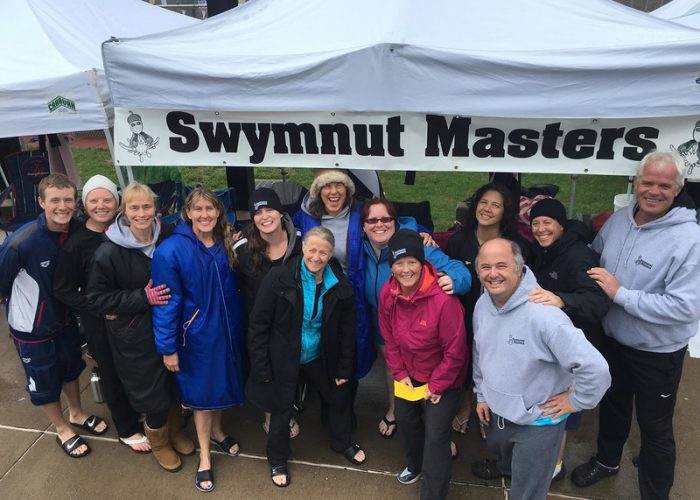
Photo Courtesy: Cokie Lepinski
The word “Masters” isn’t synonymous with “old.” If you begin work after high school in lieu of post-secondary education, or if your school doesn’t have a club team, you can join a Masters team at age 18. I began competing in Masters meets at the age of 22, and there were plenty of swimmers younger than me at all of the races.
In addition to hosting many young swimmers, Masters meets boast a certain atmosphere not present in high school or college meets. There is a much larger sense of bonding between swimmers outside of those on your team.
There are almost 65,000 Masters swimmers in the U.S. By checking out their website, you can view clubs and teams that practice in your area as well as meets happening all over the nation. I have participated in over a dozen Masters meets and I can attest that they are a blast!
3. Try a Tri!
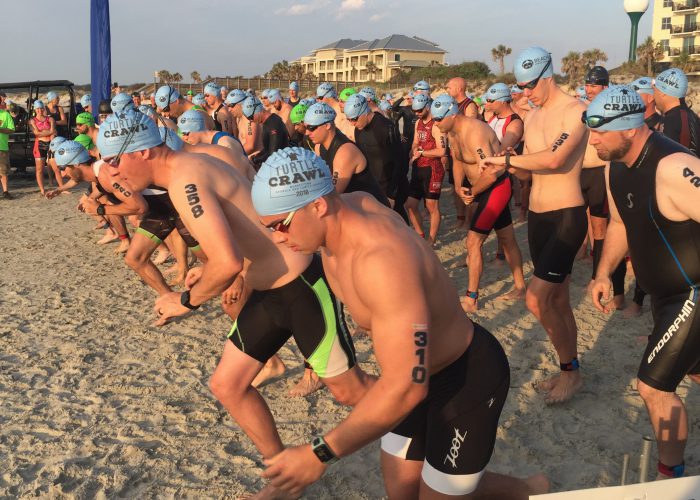
Photo Courtesy: Sydney Mason
Swimmers have a distinct advantage over athletes of other backgrounds when it pertains to triathlons: an efficient freestyle stroke is one of the more difficult skills to master in a triathlon.
I competed in my first triathlon at the beginning of May. Although brand new to this sport, it was a confidence booster to be a contender in the swim leg of the race (although of course, dozens of athletes quickly flew by me on the bike section). I fell in love with the sport during my first race. Swimming, competition, camaraderie, and new friends – what more could I want?
You don’t need to buy lots of expensive gear for your first triathlon: I didn’t have a special tri suit or clip-in shoes for my bike, I just went with what I had…and had a blast!
4. Compete in an Open Water Race
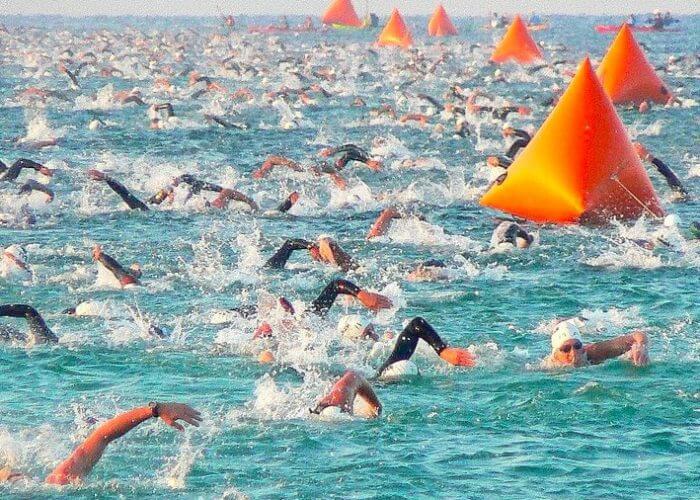
Photo Courtesy: TriSports University
Open water races aren’t as common as triathlons (depending on where you live), but they are incredibly fun. They can be hosted in anything from the ocean to a lake to a river or a creek! If it doesn’t have black lines across the bottom, it’s an eligible body of water!
Google searches, Facebook groups, the Masters website, and many other digital locations house more information about various open water swims than you could imagine.
In my first open water race, I swam a mile in a downstream current in the beautiful Tennessee River. As I finished the race, I was patted on the back by another competitor. I turned around and saw that the person congratulating me was my professor! I had no idea that he was a swimmer; the open water swimming world is a small one.
No extra swimming gear is necessary; however, some swimmers use an open water swim buoy as an added safety precaution.
All commentaries are the opinion of the author and do not necessarily reflect the views of Swimming World Magazine nor its staff.



